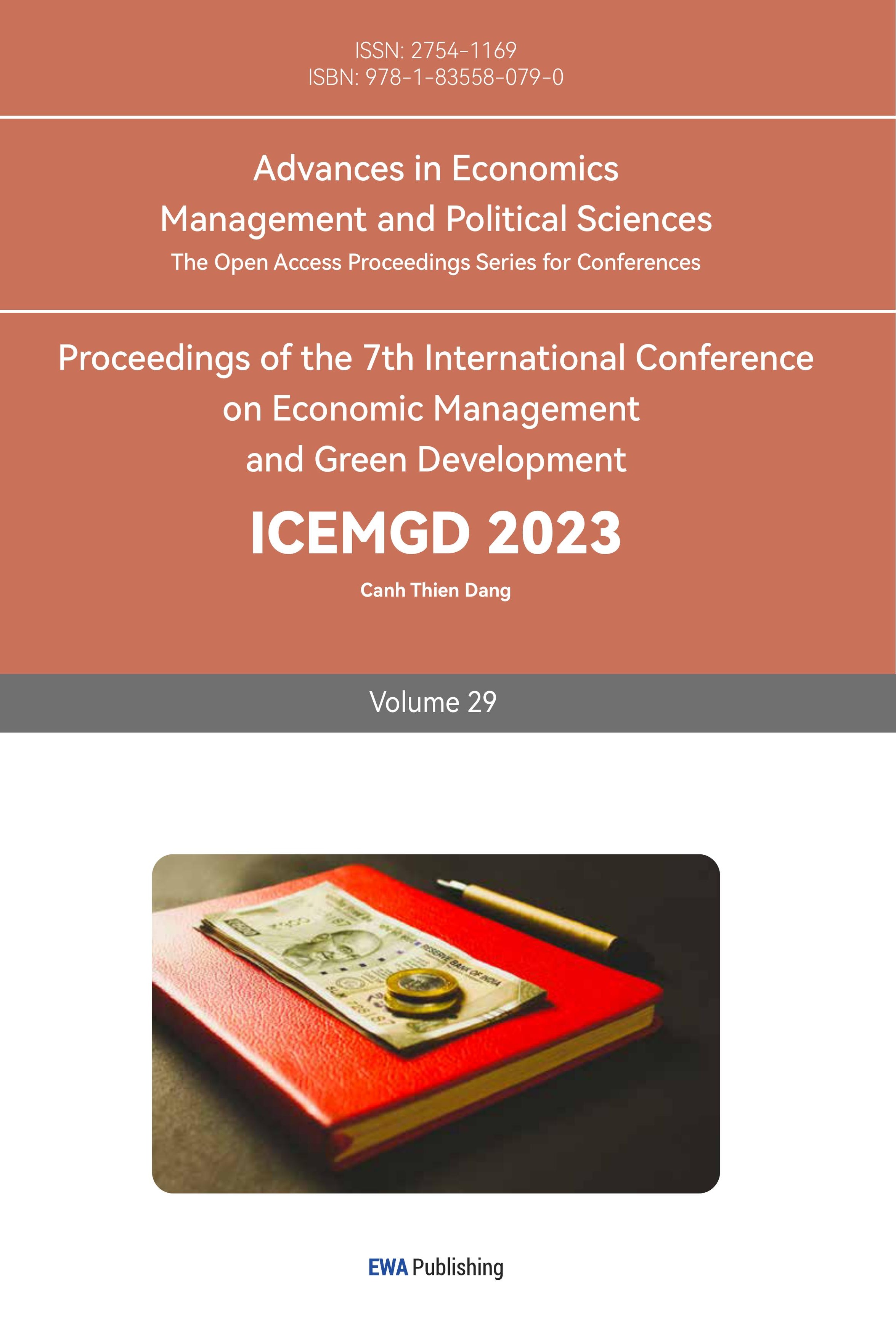References
[1]. Guo Wanchao, Xin Xiangyang. Easy to learn economics-Interpretation of 300 core economic terms [M]. University of International Business and Economics Press, Beijing 1st edition, January 2005, pp. 330-331.
[2]. Gale, D. & Shapely, L. (1962). College Admission and the Stability of Marriage. American Mathematical Monthly, 69, 9-15.
[3]. Abdulkadiroğlu, A. & Sönmez, T. (1998). Random Serial Dictatorship and the Core from Random Endowments in House Allocation Problems. Econometrica, 66(3), 689-701.
[4]. Erdil, A. (2014). Strategy-proof Stochastic Assignment. Journal of Economic Theory, 151, 146-162.
[5]. Hugh-Jones, D., Kurino, M. & Vanberg, C. (2014). An Experimental Study of the Incentives of the Probabilistic Serial Mechanism. Games and Economic Behavior, 87, 367-380.
[6]. Trifunovi D . The Review of Methods for Assignment of Elective Courses at Universities[J]. Economic Themes, 2019, 57(4):511-526.
[7]. Budish, E., & Cantillon, E. (2012). The Multi-unit Assignment Problem: Theory and Evidence from Course Allocation at Harvard. American Economic Review, 102(5), 2237-71.
[8]. Budish, E. (2011). The Combinatorial Assignment Problem: Approximate Competitive Equilibrium from Equal Incomes. Journal of Political Economy, 119(6), 1061-1103.
Cite this article
Wang,X. (2023). Comparative Analysis on Benefits of Elective System at Universities Based on Triangle-dynamic-matching System. Advances in Economics, Management and Political Sciences,29,151-156.
Data availability
The datasets used and/or analyzed during the current study will be available from the authors upon reasonable request.
Disclaimer/Publisher's Note
The statements, opinions and data contained in all publications are solely those of the individual author(s) and contributor(s) and not of EWA Publishing and/or the editor(s). EWA Publishing and/or the editor(s) disclaim responsibility for any injury to people or property resulting from any ideas, methods, instructions or products referred to in the content.
About volume
Volume title: Proceedings of the 7th International Conference on Economic Management and Green Development
© 2024 by the author(s). Licensee EWA Publishing, Oxford, UK. This article is an open access article distributed under the terms and
conditions of the Creative Commons Attribution (CC BY) license. Authors who
publish this series agree to the following terms:
1. Authors retain copyright and grant the series right of first publication with the work simultaneously licensed under a Creative Commons
Attribution License that allows others to share the work with an acknowledgment of the work's authorship and initial publication in this
series.
2. Authors are able to enter into separate, additional contractual arrangements for the non-exclusive distribution of the series's published
version of the work (e.g., post it to an institutional repository or publish it in a book), with an acknowledgment of its initial
publication in this series.
3. Authors are permitted and encouraged to post their work online (e.g., in institutional repositories or on their website) prior to and
during the submission process, as it can lead to productive exchanges, as well as earlier and greater citation of published work (See
Open access policy for details).
References
[1]. Guo Wanchao, Xin Xiangyang. Easy to learn economics-Interpretation of 300 core economic terms [M]. University of International Business and Economics Press, Beijing 1st edition, January 2005, pp. 330-331.
[2]. Gale, D. & Shapely, L. (1962). College Admission and the Stability of Marriage. American Mathematical Monthly, 69, 9-15.
[3]. Abdulkadiroğlu, A. & Sönmez, T. (1998). Random Serial Dictatorship and the Core from Random Endowments in House Allocation Problems. Econometrica, 66(3), 689-701.
[4]. Erdil, A. (2014). Strategy-proof Stochastic Assignment. Journal of Economic Theory, 151, 146-162.
[5]. Hugh-Jones, D., Kurino, M. & Vanberg, C. (2014). An Experimental Study of the Incentives of the Probabilistic Serial Mechanism. Games and Economic Behavior, 87, 367-380.
[6]. Trifunovi D . The Review of Methods for Assignment of Elective Courses at Universities[J]. Economic Themes, 2019, 57(4):511-526.
[7]. Budish, E., & Cantillon, E. (2012). The Multi-unit Assignment Problem: Theory and Evidence from Course Allocation at Harvard. American Economic Review, 102(5), 2237-71.
[8]. Budish, E. (2011). The Combinatorial Assignment Problem: Approximate Competitive Equilibrium from Equal Incomes. Journal of Political Economy, 119(6), 1061-1103.









